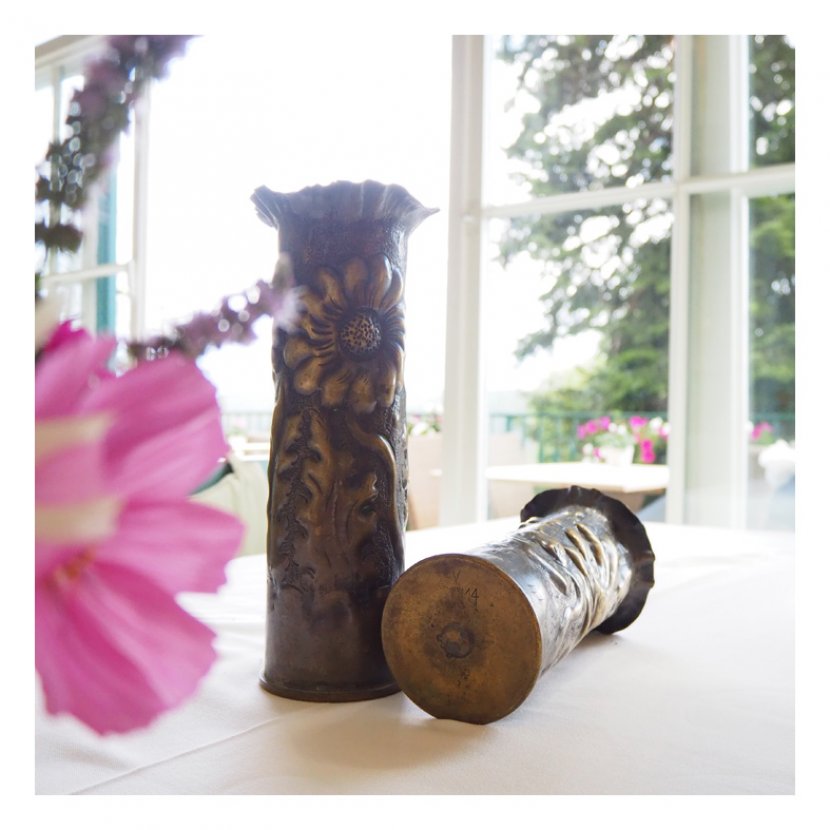Then and now: When something terrible turns beautiful
The Holzner has been a place of living history for 112 years. And through all the ups and downs, through all the periods of prosperity and crises, it has grown and become what makes it lovable and special today: a place of joy and peace for all generations, then and now. This time, you will read how something beautiful was created from the terrible remnants of war.

A particularly cunning fellow, who was well known all over Ritten mountain, was able to get hold of a particularly large number of pieces, which were then welded together and deformed to meet new requirements. But what was he to do with these large cartridges, several of which he now had at home in his workshop? They were still intact and sometimes he was uncomfortable with the fact that he was working next to live ammunition and sparking while welding.
So, one day he went to see his old friend, Wilhelm Holzner, who had just returned from Berlin. As an engineer, he would certainly have an idea about what to do with the confounded stuff. And he did. He planned an open-air swimming pool for Oberbozen, below the hotel grounds, open to the public. When the excavations had begun, it became apparent that the rocky ground, interspersed with red quartz porphyry, made the work difficult. Thus, the black powder from the cartridges came just in time and was used for blasting. The Oberbozen public pool still exists today, and with its breathtaking view of the Dolomites, it is one of the most beautiful ones in the area.
Meanwhile, the skilled craftsman took the empty cartridge cases back and created something from them that ridiculed their original purpose: he used them to make flower-studded, ornamental vases, containers for colorful bouquets, for roses, carnations, and fragrant lilacs. Then he sold them to his engineer friend Wilhelm at a bargain price, and today they can be admired in the hotel dining room as evidence that sometimes, even terrible things can turn into something beautiful, sooner or later.